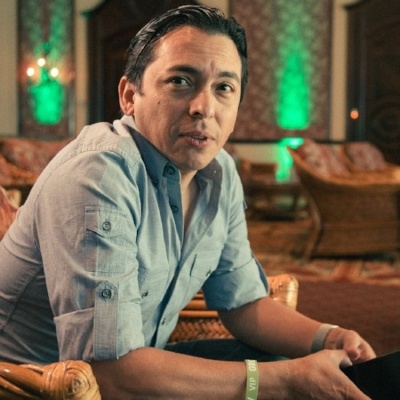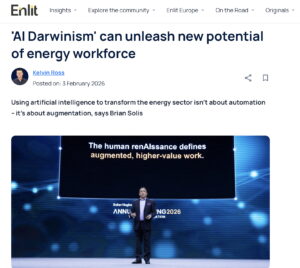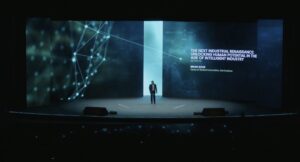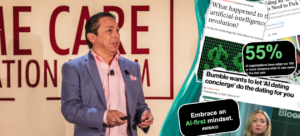
Part 1 of 2
I once had the honor of giving a TEDx Talk in San Francisco. I’ll never forget it. Even though I speak for a living, speaking at TED honestly terrified me. There’s something about the TED stage, the big ideas and the iconic personalities who have graced it over the years that has a way of grounding and even intimidating you. The experience was so powerful and life-changing, I sought to subject myself to the jitters and butterflies all over again in 2014.
In 2014, I applied for a special TED event hosted in partnership with IBM. Even though my proposals weren’t accepted, I still wanted to share them with you here after all these years.
Part 1 is below. Part 2 is located here.

Brief outline of the suggested talk (in as much detail as you feel is required):
Said in an older, stodgier voice, “In my day, we didn’t get a trophy for everything!”
Jeff Weiner CEO at LinkedIn should have startled the world of human capital when he declared something we might have only suspected, “There is a widening skills gap where the existing workforce has been educated and trained to obtain the jobs of yesterday and not the jobs of today and tomorrow.”
Matures, Boomers, Generation X, three generations that today make up a majority of the workforce are the backbone of industry. At the same time, Millennials, digital natives are sprouting into relevance set to command over 70% of the workforce in just 10 years.
Analog first versus digital first.
Many of the technology systems and management processes are designed for an analog-first world. Yet, the coming tidal wave of Millennials only know the world as digital-first. This comes at an incredibly fragile moment where employees as a whole are united in their unhappiness. In late 2013, Gallup found that only 13% of employees are engaged compared to 63% that are not engaged.
If Weiner’s estimation is accurate, and for all intents and purposes, we can assume so, we not only have to prepare an entire workforce for tomorrow’s jobs today, we have to make them learn and grow enthusiastically wholeheartedly.
What stands in the way of doing so however is a disproportionate acceptance of the need to change and the brewing animosity that separates the generations. Essentially, it’s three generations against one, where fingers point to Millennials as an entitled generation unwilling to follow the rules and expecting the system to accommodate and accept their uniqueneeds and aspirations.
At the same time, incumbent generations aren’t swiftly pursuing the skills that separate tomorrow from yesterday. And, emergent generations don’t feel like everyone else “gets” them.
I believe though that something can be done, with incredible outcomes, if we embrace the gifts of empathy and possibility. Everything begins with the courage to question…everything. Just because things have always been done a certain way doesn’t mean that it’s the only way to succeed moving forward. In fact, in my research, I’ve learned that in many ways, what it takes to succeed tomorrow is often counter-intuitive to what we think or believe the solutions are.
Why do you believe this talk would be of interest?
I think we are all in our own way struggling to find our place in the future of work. There’s a bit of each of us in this presentation…where we’re coming from and where we’re going.
I’ve had the opportunity to spend time with all generations. I’ve learned what’s important to them, what they cherish, and also what frustrates them. I’ve also worked with companies to recruit Gen Y, build programs to nurture their talents and dispositions, and align their aspirations with the goals and objectives of the company. How we got there is fascinating, different and something we can all learn from.
What’s most interesting is that is that whether we underappreciate this topic or are intrigued by it, it’s going to play out one way or another. It’s what we do now that defines our legacy and promise moving forward.
What is the new and tangible impact or benefit this talk will bring forward or have on the world (as much detail as you feel is required)?
The truth is that something sweeping is needed to rally a new workforce toward the next economy. In my presentation I will share what will be new research, and not yet presented, in how engagement of each generation and people in general, will not only modernize the workforce but also create a culture of engagement, which contributes toward innovation and a bevy of tangible competitive advantages.
In the end though, it takes compassion and a complete overhaul of how we hire, teach, reward, and furthermore, work.
The big idea here is that as employers, as parents, as teachers, we need to lead the revolution in business, education, and leadership instead of complaining about how things are versus how they used to be.
We often get too caught up in the technology. We blame anything and everything on kids who can’t put their phone away. We look at younger employees and create a wall between them and us because they’re coming up in a time that’s different than the way we earned our way up.
We get frustrated with students for losing attention or interest because we insist on teaching them the way we learned rather than learning how they learn.
But I believe this is just that moment when we can create something even better than what we’ve known or know. By studying behavior we can learn how to lead a connected generation rather than react to it. We can fight for what’s next rather than fighting for what was is a losing battle.
As leaders, mentors, teachers, parents, and colleagues, we must appreciate what “is” and learn what could be to become inspired by it all. And, at a human level, we can shape the future instead of it happening to us.
What is the “one sentence” key takeaway you want the audience to know or feel after hearing the talk?
How we earned our place and what it took to get here is not to be forgotten, but we must open our minds and arms to embrace a new way to nurture tomorrow’s workforce and compete for the future…right now.

Brian Solis | Author, Keynote Speaker, Futurist
Brian Solis is world-renowned digital analyst, anthropologist and futurist. He is also a sought-after keynote speaker and an 8x best-selling author. In his new book, Lifescale: How to live a more creative, productive and happy life, Brian tackles the struggles of living in a world rife with constant digital distractions. His previous books, X: The Experience When Business Meets Design and What’s the Future of Business explore the future of customer and user experience design and modernizing customer engagement in the four moments of truth.
Invite him to speak at your next event or bring him in to your organization to inspire colleagues, executives and boards of directors.
Photo Credit: @anniespratt, Unsplash





Leave a Reply